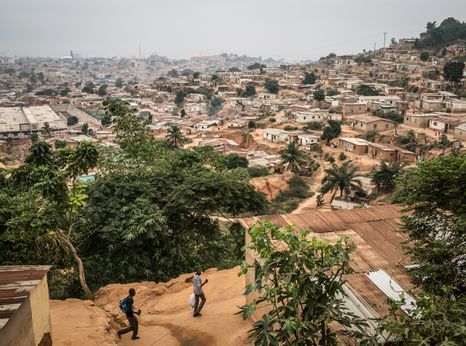59 protester officially charged

© Nichole Sobecki/The Washington Post/Getty Images
The Treaty of Simulambuco was signed on 1 February 1885. It gave Cabinda the status of a protectorate of the Portuguese Crown. Cabinda is located on a sliver of land sandwiched between the Democratic Republic of Congo and the Congo Republic. It is internationally recognized as part of Angola and produces most of the country’s oil export. Separatist groups have been seeking independence or autonomy from Angola for over 20 years. The Angolan Government’s attempts to negotiate with representatives of the Cabindan separatist groups have not been successful.
On 7 January 2019, the Independence Movement of Cabinda (Movimento Independista de Cabinda – MIC) Secretary sent a communication to the President of the Republic of Angola, João Manuel Gonçalves Lourenço, and copies to the Provincial Government of Cabinda, the Provincial Police Command, the Public Prosecutor of the Republic, to Angolan political parties, and other authorities, to inform them about the peaceful protest scheduled for 1 February. The MIC asked for the Angolan Police to be present at the protest to ensure the safety of protesters.
Angolan security forces arrested eight youth activists from MIC at their homes on 28 January in Cabinda Province. They were preparing leaflets for the peaceful protest on 1 February.
The next day, 18 people, including family members and colleagues of the detained youth activists, were arrested by the police while peacefully protesting to demand their release in front of the Service of Criminal Investigation building in Cabinda. Protesters took to the streets of Cabinda on 1 February to celebrate the 134th anniversary of the signing of the Treaty of Simulambuco and to reiterate calls for Cabinda’s independence from Angola. They also called for the release of those previously arrested. The police arrested 32 protesters on that day. On 12 February, the police arrested another activist allegedly for his involvement in the same peaceful protest.
Amnesty International is also concerned with the continued use of excessive force by police against protesters and their arbitrary arrests. On 1 March, MIC activists and family members of the 50 detained protesters were preparing a demonstration at the 1st of May square in Cabinda to demand their release. The police arrived before the start of the protest and began to assault the protesters, kicking and punching them. The police arrested 11 people who were released hours later without charge. Seven of the arrested protesters were hospitalized due to the police beatings and returned home on the next day.
Several protesters allege that they were subjected to ill-treatment by police officers at the time of their arrest and while in prison.
A judge at the Cabinda Court ordered the provisional release of 13 detainees on 27 February, ruling that their arrest at home without a warrant was illegal. Later, on 19 April, the judge ordered the provisional release of a further 40 protesters, on the grounds that they present themselves before the court every 15 days.